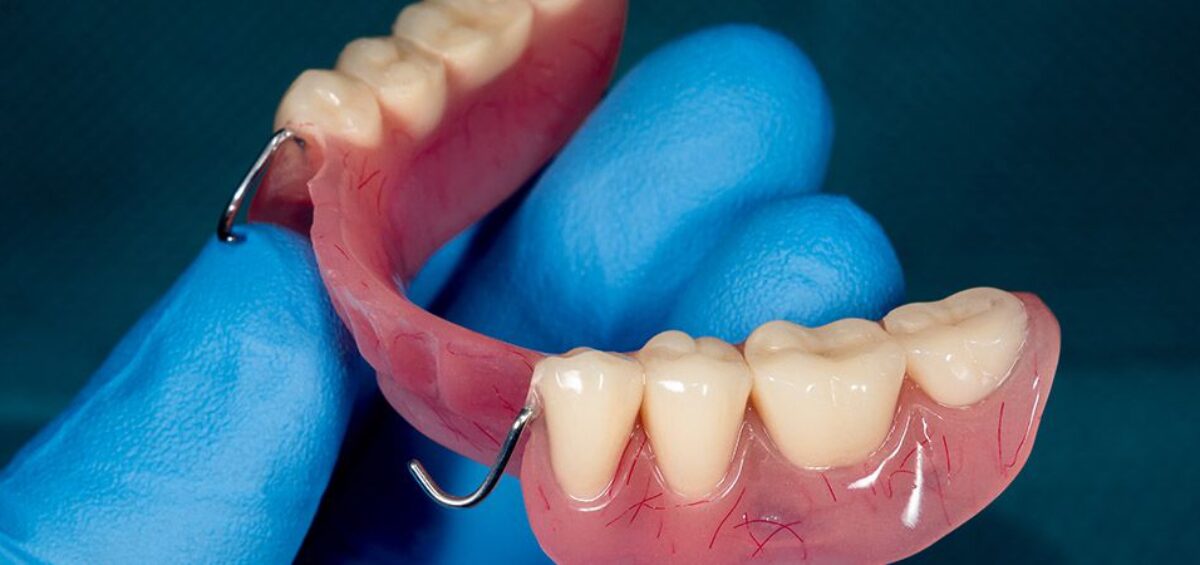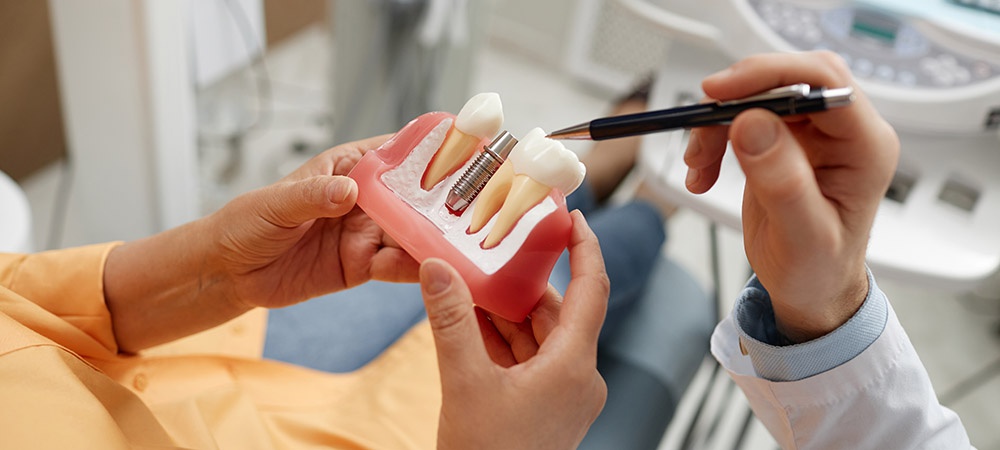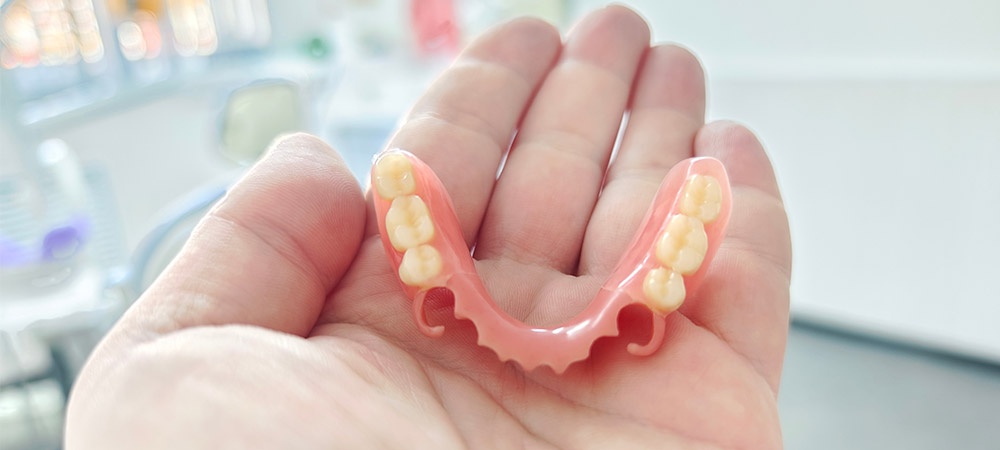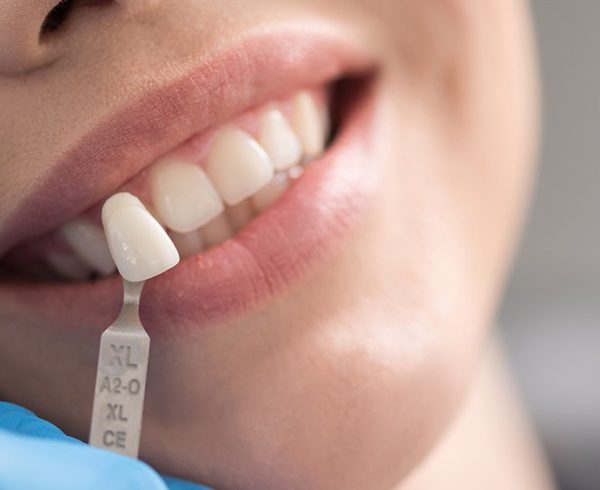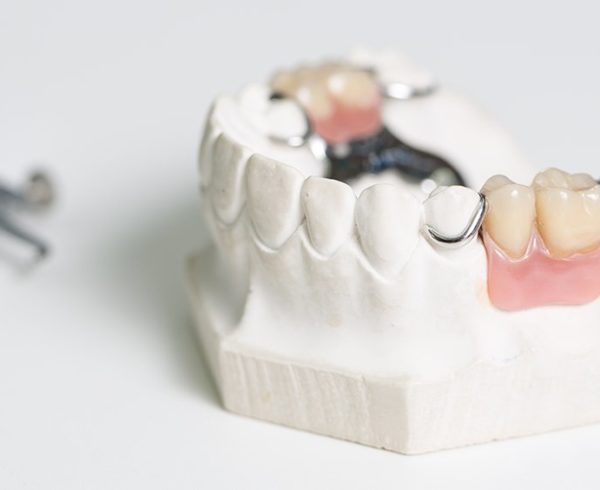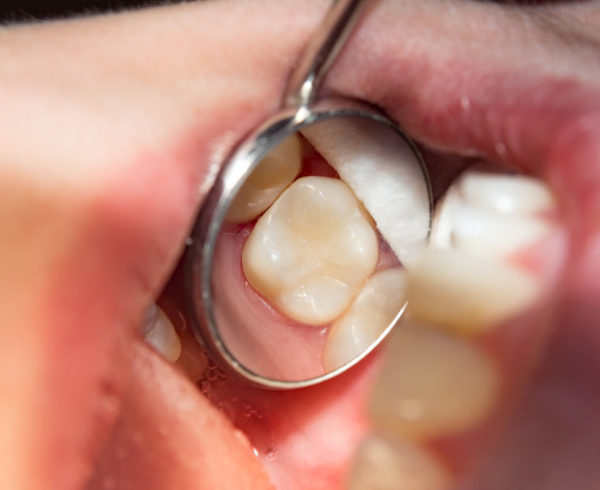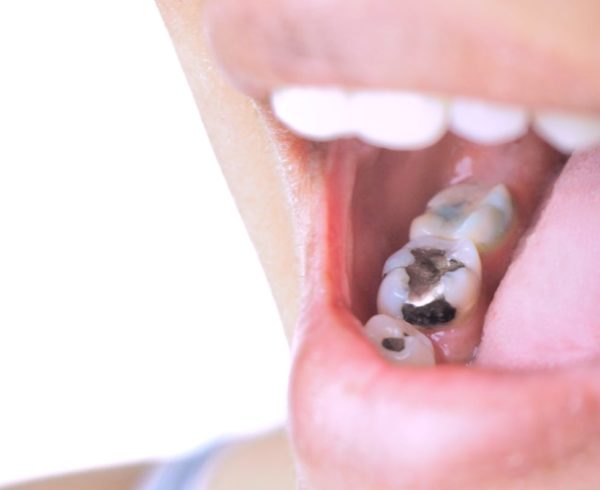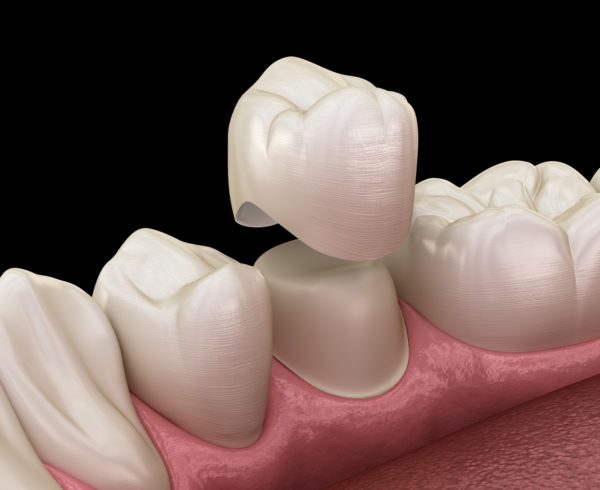The debate between which is better, dental implants or partial dentures, often arises as you explore options. Opting for dental implants is great if you need a more permanent solution to missing teeth. However, partial dentures replace missing teeth and are temporary.
One factor to consider before opting for dentures or implants is your budget. While implants are permanent, they are more expensive than dentures. At Osmin Denture Clinic, we understand that choosing the right solution for missing teeth significantly impacts oral health and overall well-being.
In this comprehensive guide, we’ll delve into the best between dental implants and partial dentures, weighing the pros and cons to help you make an informed choice for a radiant and confident smile.
Weighing Your Options: Dentures vs Implants
Dental implants may be ideal if you value permanence, enhanced functionality, and a natural appearance. However, partial dentures could be the perfect fit if you prefer a more affordable and non-invasive option with removal flexibility.
Dental Implants: A Permanent Solution
Dental implants are modern marvels in restorative dentistry. These implants consist of titanium posts surgically anchored into the jawbone, mimicking the function of natural tooth roots. Once in place, they provide a sturdy foundation for attaching prosthetic teeth, creating a seamless, long-lasting solution.
Advantages of Dental Implants:
- Permanent Fixture: Dental implants offer a permanent solution, integrating with the jawbone for unparalleled stability. This permanence contributes to a natural look and feel.
- Bone Preservation: Implants stimulate the jawbone, preventing bone loss commonly occurring with missing teeth. This preservation is crucial for maintaining facial structure and overall oral health.
- Enhanced Chewing Function: The stability of implants restores chewing efficiency to near-natural levels. This allows for a more varied and enjoyable diet.
- No Impact on Adjacent Teeth: Unlike some dental procedures, implants do not require alteration or support from neighbouring teeth. This helps in preserving the integrity of adjacent healthy teeth.
- Aesthetic Appeal: Dental implants closely mimic natural teeth, providing a realistic appearance that seamlessly blends with the rest of the smile.
Considerations for Dental Implants:
- Invasive Procedure: Implant placement involves a surgical procedure. While advancements have made it minimally invasive, it may still require a recovery period.
- Cost: Dental implants are a significant investment. However, their long-term benefits often justify the initial expense.
- Treatment Duration: The process of getting dental implants can take several months, involving multiple stages from implant placement to the attachment of the prosthetic teeth.
Related Article: Essential Denture Care Tips for Seniors: A Comprehensive Guide by Osmin Denture Clinic
Partial Dentures: A Removable Option
Partial dentures are removable appliances designed to replace missing teeth. They consist of artificial teeth attached to a gum-coloured base, often secured to natural teeth with clasps or precision attachments. Partial dentures offer a non-invasive and more economical solution.
Advantages of Partial Dentures:
- Non-Invasive: Getting partial dentures is non-invasive, requiring no surgery. This makes it an attractive option for those who prefer a less complex procedure.
- Affordability: Partial dentures are generally more budget-friendly than dental implants, making them accessible to a broader range of patients.
- Ease of Maintenance: Cleaning and maintaining partial dentures is straightforward. You can easily remove them for cleaning, and should be kept in a denture solution overnight.
- Quicker Solution: Unlike the extended timeline associated with dental implants, removable partial dentures can often be crafted and fitted in a shorter period.
Considerations for Partial Dentures:
- Removability: The fact that upper partial dentures are removable means they may not offer the same level of stability as dental implants. Some users may experience slippage or discomfort.
- Impact on Adjacent Teeth: Clasps or attachments used to secure partial dentures may exert force on adjacent natural teeth, potentially affecting their health over time.
- Bone Loss: Unlike implants, upper or lower partial dentures do not stimulate the jawbone, contributing to potential bone loss in the long run.
- Aesthetic Limitations: While advancements have improved the aesthetics of partial dentures, some individuals may find that they do not achieve the same level of naturalness as dental implants.
Related Article: The Signs and Symptoms of a Dental Emergency: Recognizing When to Seek Urgent Care
Making the Decision: Your Smile, Your Choice
The decision between dental implants and partial dentures ultimately depends on individual preferences, oral health needs, and budget considerations. At Osmin Denture Clinic, we prioritize personalized care, guiding you through decision-making to ensure the chosen solution aligns seamlessly with your lifestyle and goals.
Whether you opt for dental implants’ permanence or partial dentures’ versatility, we ensure a customized and comfortable fit, restoring your smile and confidence. Contact Osmin Denture Clinic today at 647-294-3310 to schedule a consultation.

